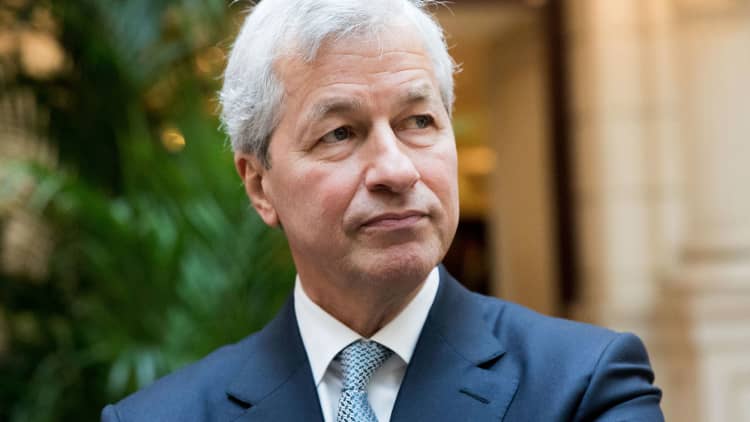
Though the financial crisis is still fresh in the minds of many investors, JPMorgan Chase CEO Jamie Dimon believes there's nothing to worry about.
"Essentially, too big to fail has been solved — taxpayers will not pay if a bank fails," Dimon said in his annual letter to shareholders released Tuesday.
"The American public has the right to demand that if a major bank fails, they, as taxpayers, would not have to pay for it, and the failure wouldn't unduly harm the U.S. economy," he added. "In my view, these demands have now both been met."
Market panic will never disappear entirely, and regulations must be flexible enough to allow banks to act as a bulwark against it rather than forcing financial institutions into a defensive crouch that will only make things worse.Jamie DimonCEO, JPMorgan Chase
The expression is a relic from the 2008 financial crisis that refers to regulators' determination then that certain institutions could not be allowed to go bankrupt, because of the danger such an outcome would pose to the wider financial system. Multiple financial institutions received taxpayer aid in the wake of the collapse of Lehman Brothers that year.
Dimon cites multiple reasons why he believes the too-big-to-fail phenomenon no longer exists. Among them are higher capital and liquidity levels, more transparency and disclosure and a general regulatory environment that has made the system far more secure.
In fact, he said some regulations go too far.
"Market panic will never disappear entirely, and regulations must be flexible enough to allow banks to act as a bulwark against it rather than forcing financial institutions into a defensive crouch that will only make things worse," he said.
Dimon cites the need for "consistent, transparent, simplified and more risk-based capital standards."
However, he contends that under today's capital rules, Lehman probably wouldn't have even failed. The bank's capital would now be $45 billion as opposed to the $23 billion in 2007. If Lehman still failed, he said multiple safeguards put into place now wouldn't put the onus on taxpayers.
Dimon added that due to the existence of "living wills" that show how a bank would be unwound in case of emergency, "Too Big to Fail was solved before any additional rules were put in place."


